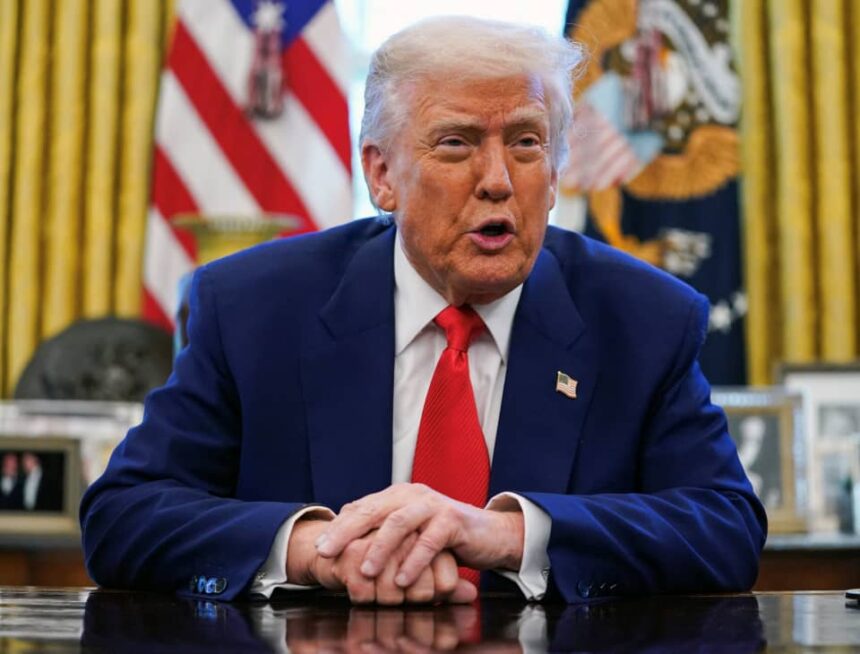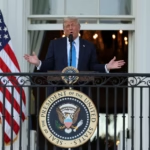Smartphones, Computers, and Tech Devices Escape 145% Tariff Impact– Trump

In a surprising reversal, President Donald Trump has officially exempted smartphones, computers, and critical tech components from his recently announced 145% tariffs on Chinese goods. The U.S. Customs and Border Protection (CBP) issued updated guidance late Friday confirming the exemptions.
This move follows a backlash from major technology companies, especially Apple, which manufactures most of its flagship products—including iPhones, iPads, and Mac computers—in China.
Broad Exemptions Include Semiconductors, Solar Cells, and Data Storage

The exemption list, revealed in the CBP guidelines, covers 20 product categories and includes:
- Semiconductors
- Solar cells
- Flat panel television displays
- Flash drives and memory cards
- Solid-state drives (SSDs) used for data storage
These categories will now escape both the 125% reciprocal tariff on Chinese goods and the baseline 10% tariff on imports from other countries. However, a 20% tariff on all Chinese goods still applies.
White House: Time Needed to Shift Supply Chains to U.S.
In a statement on Saturday, White House Deputy Press Secretary Kush Desai said the exemptions were issued to give companies time to relocate manufacturing to the U.S., emphasizing that America must stop depending on China for vital technologies.
“President Trump has made it clear America cannot rely on China to manufacture critical technologies such as semiconductors, chips, smartphones, and laptops,” Desai said.
“These companies are hustling to onshore their manufacturing in the United States as soon as possible,” he added.
Tech Industry Relief: Exemptions Could Avert Market Crisis
The move was met with relief across the tech sector. Dan Ives, Global Head of Technology Research at Wedbush Securities, called the decision a “dream scenario” for tech investors.
“Smartphones and chips being excluded is a game changer… No sector was going to be more hurt than big tech,” Ives told CNBC.
He suggested that big tech executives pressured the administration to roll back the tariffs, which could have created economic turmoil.
“This would have been Armageddon for big tech if it were implemented,” Ives added.
Apple’s $640 Billion Market Value Wipe Sparks Urgency
Since the original tariff announcement, Apple reportedly lost over $640 billion in market value. Analysts warned the cost of an iPhone could surge up to $3,500 under the full tariff plan. The stock market responded sharply to the uncertainty, with:
- S&P 500 plunging over 5%
- 10-year Treasury yield rising by more than 50 basis points—one of the sharpest spikes in history
- Increased volatility prompting a broader investor sell-off of U.S. assets
Reprieve Follows Pressure from Wall Street and Global Markets
The intense market reaction may have influenced the White House to backpedal partially, introducing a 90-day tariff reprieve for most countries and opting for a universal 10% rate, excluding China.
Still, a 20% flat tariff on all Chinese imports remains intact.
Tariff Exemptions Retroactive for Shipments After April 5, 2025
The CBP guidance clarified that the exemptions would be retroactive for products shipped from warehouses by April 5, 2025. This helps U.S. shippers with financial planning, as importers are liable for tariffs only once goods arrive at U.S. Customs for processing.









